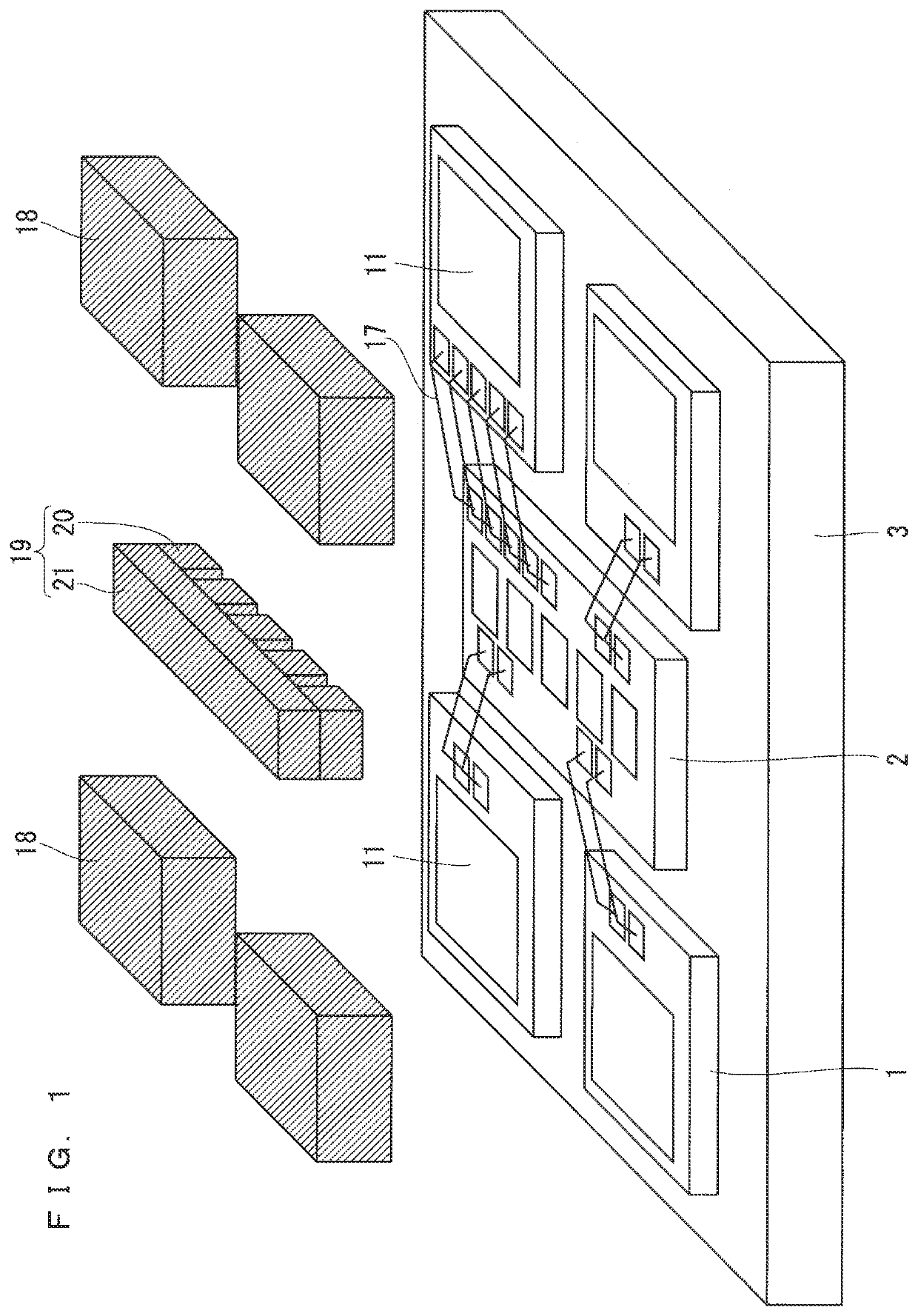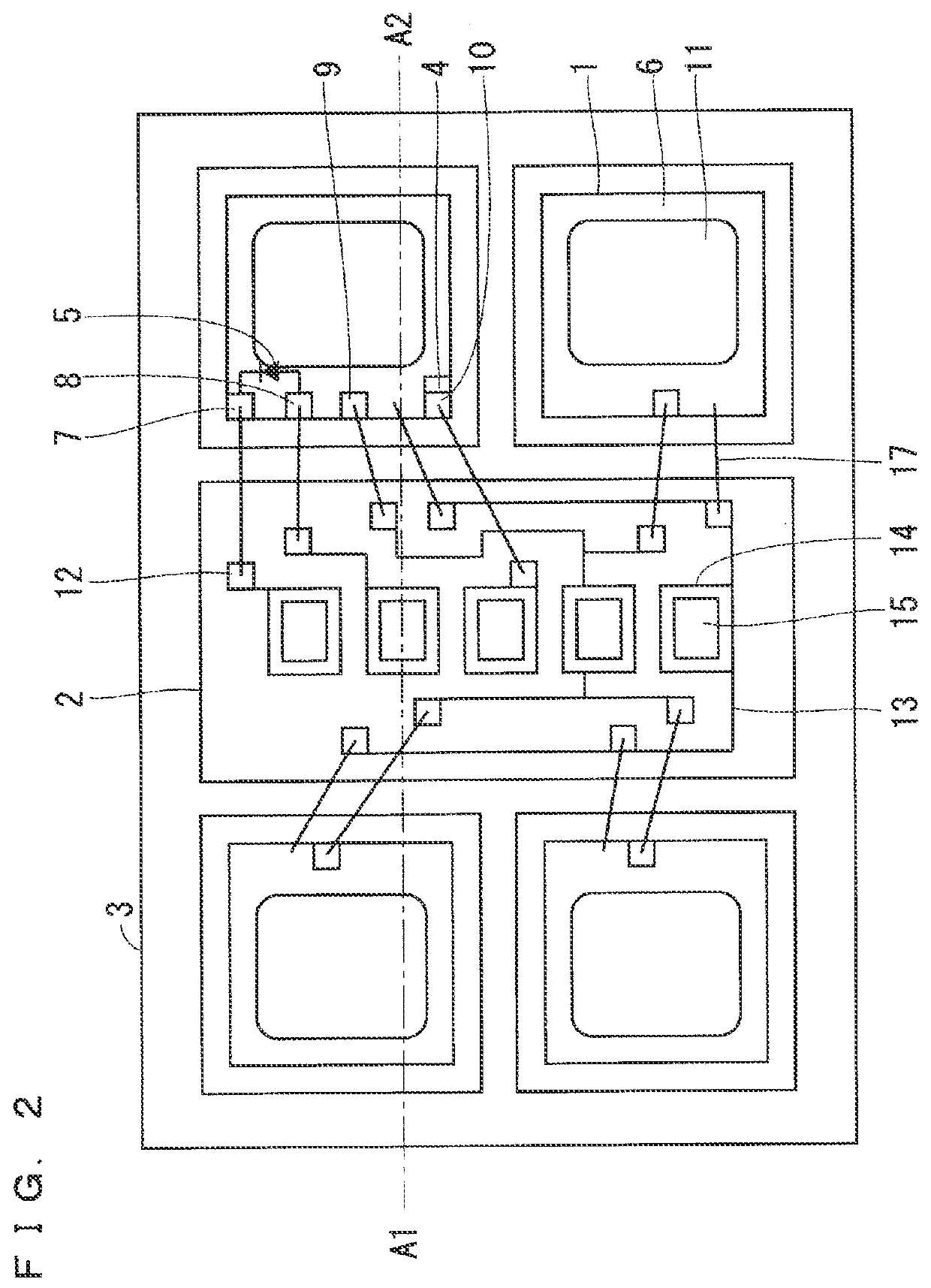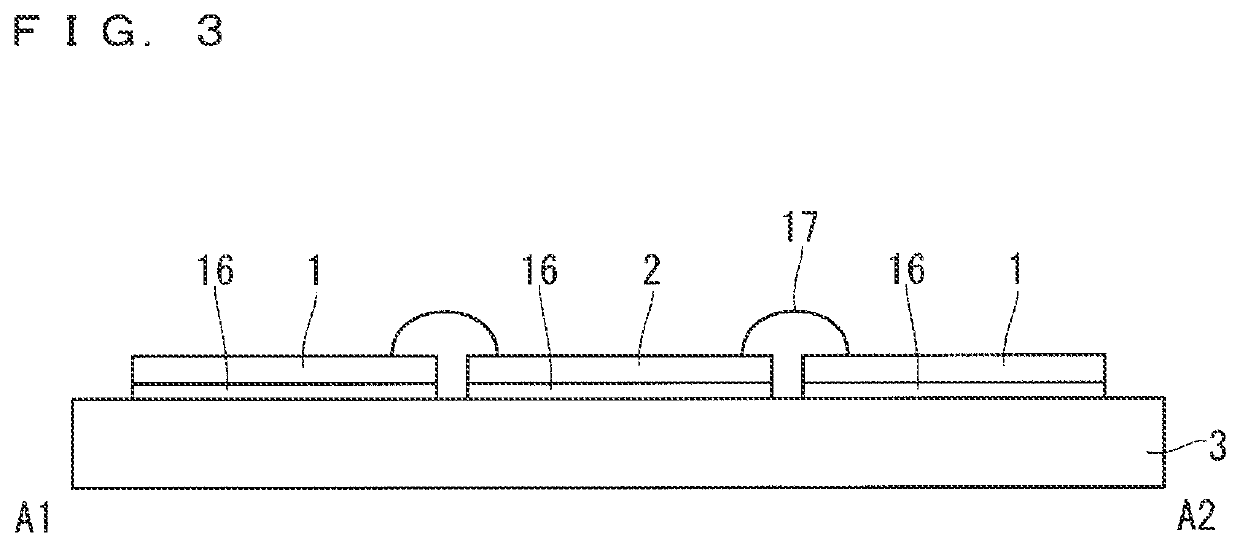Method of manufacturing semiconductor device
a manufacturing method and semiconductor technology, applied in semiconductor devices, semiconductor/solid-state device details, electrical devices, etc., can solve the problem of reducing the yield of semiconductor devices, and achieve the effect of suppressing electrostatic breakdown
- Summary
- Abstract
- Description
- Claims
- Application Information
AI Technical Summary
Benefits of technology
Problems solved by technology
Method used
Image
Examples
embodiment 1
[0052]
[0053]FIGS. 1 to 12 are diagrams for describing a method of manufacturing a semiconductor device according to an embodiment 1. FIG. 13 is a flow chart illustrating an example of the method of manufacturing the semiconductor device according to the embodiment 1. The method of manufacturing the semiconductor device according to the embodiment 1 is described hereinafter with reference to FIGS. 1 to 13.
[0054]As illustrated in FIGS. 1 to 3, in a first bonding process of Step S11 in FIG. 13, a relay substrate 2 and a plurality of semiconductor elements 1 are bonded on a conductor plate 3 using a bonding material 16.
[0055]The semiconductor element 1 is a composite compound semiconductor element made of SiC, for example, and is made up of a metal oxide semiconductor field effect transistor (MOSFET), for example. In the embodiment 1, the four semiconductor elements 1 are bonded on the conductor plate 3, and one of the four semiconductor elements 1 includes a main cell part and a sense ...
embodiment 2
[0081]
[0082]FIGS. 14 to 28 are diagrams for describing a method of manufacturing a semiconductor device according to an embodiment 2. The method of manufacturing the semiconductor device according to the embodiment 2 is described hereinafter with reference to FIGS. 14 to 28, however, the description is mainly focused on a process different from the method of manufacturing the semiconductor device according to the embodiment 1. Each process of manufacturing the semiconductor device according to the embodiment 2 is similar to that in the flow chart illustrated in FIG. 13.
[0083]As illustrated in FIGS. 17 to 19, in a third bonding process of Step S14 in FIG. 13, a second electrode material 24 is bonded to the connection film 15 provided on each second pad part 14 of the relay substrate 2 using the bonding material 22. The second electrode material 24 includes an insulating material 25 and the plurality of connection parts 20. The connection parts 20 are integrally formed by the insulati...
embodiment 3
[0093]
[0094]FIGS. 32 to 43 are diagrams for describing a method of manufacturing a semiconductor device according to an embodiment 3. FIG. 44 is a flow chart illustrating an example of the method of manufacturing the semiconductor device according to the embodiment 3. The method of manufacturing the semiconductor device according to the embodiment 3 is described hereinafter with reference to FIGS. 32 to 44, however, the description is mainly focused on a process different from the method of manufacturing the semiconductor device according to the embodiment 1.
[0095]The semiconductor device according to the embodiment 3 does not include the relay substrate 2. Accordingly, each process illustrated in FIG. 44 does not have a process corresponding to the wire bonding process of Step S12 in FIG. 13.
[0096]As illustrated in FIGS. 32 to 34, in a first bonding process of Step S21 in FIG. 44, the semiconductor element 1 is bonded on the conductor plate 3 using the bonding material 16. The semi...
PUM
 Login to view more
Login to view more Abstract
Description
Claims
Application Information
 Login to view more
Login to view more - R&D Engineer
- R&D Manager
- IP Professional
- Industry Leading Data Capabilities
- Powerful AI technology
- Patent DNA Extraction
Browse by: Latest US Patents, China's latest patents, Technical Efficacy Thesaurus, Application Domain, Technology Topic.
© 2024 PatSnap. All rights reserved.Legal|Privacy policy|Modern Slavery Act Transparency Statement|Sitemap



